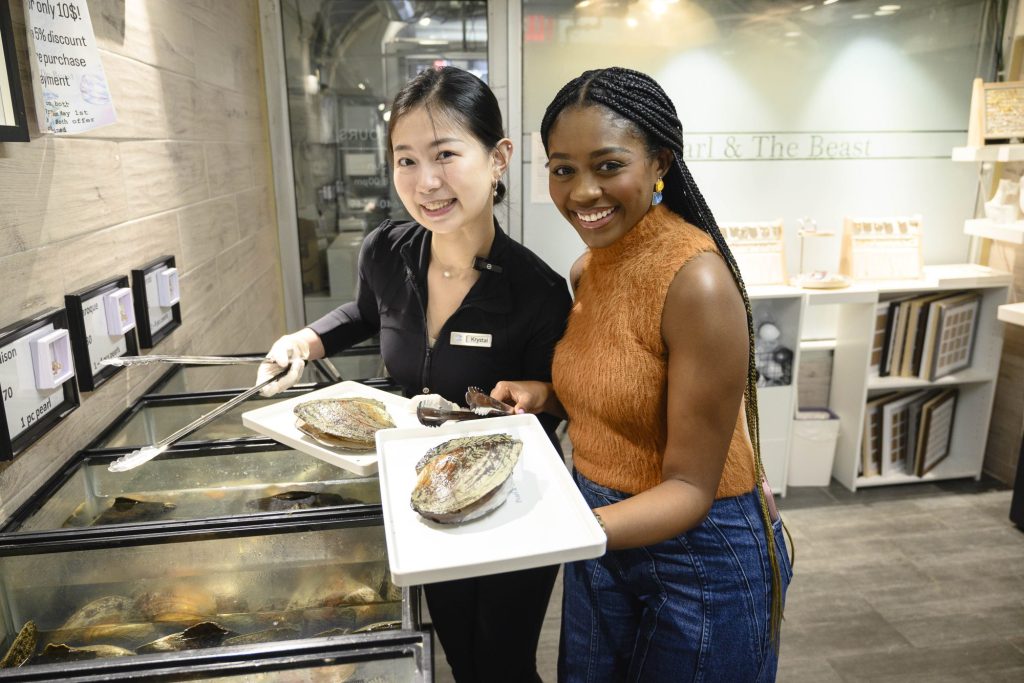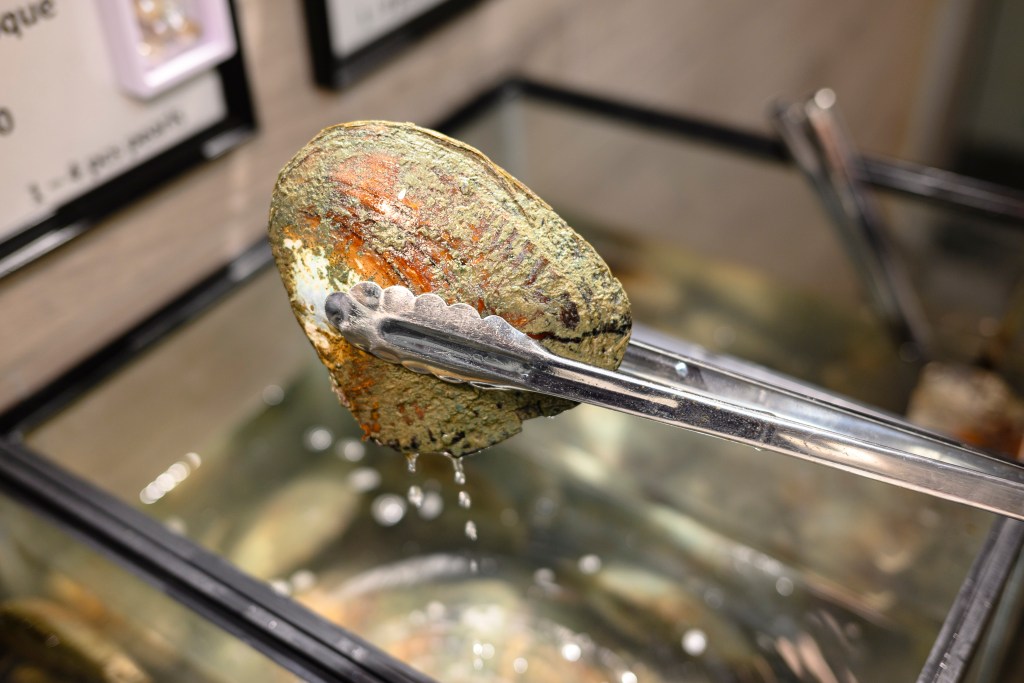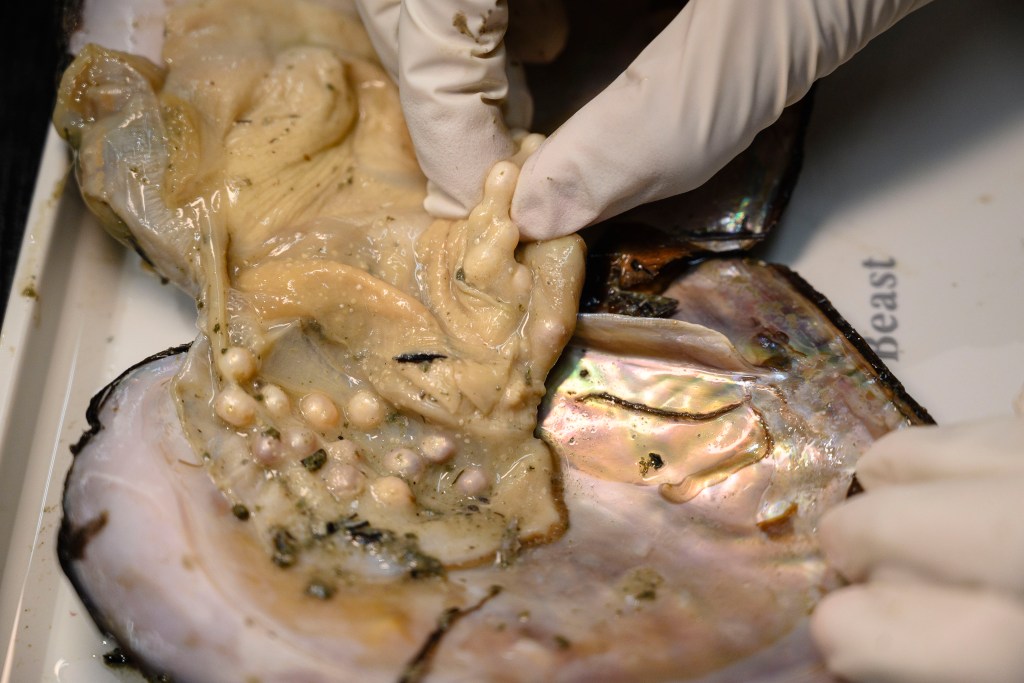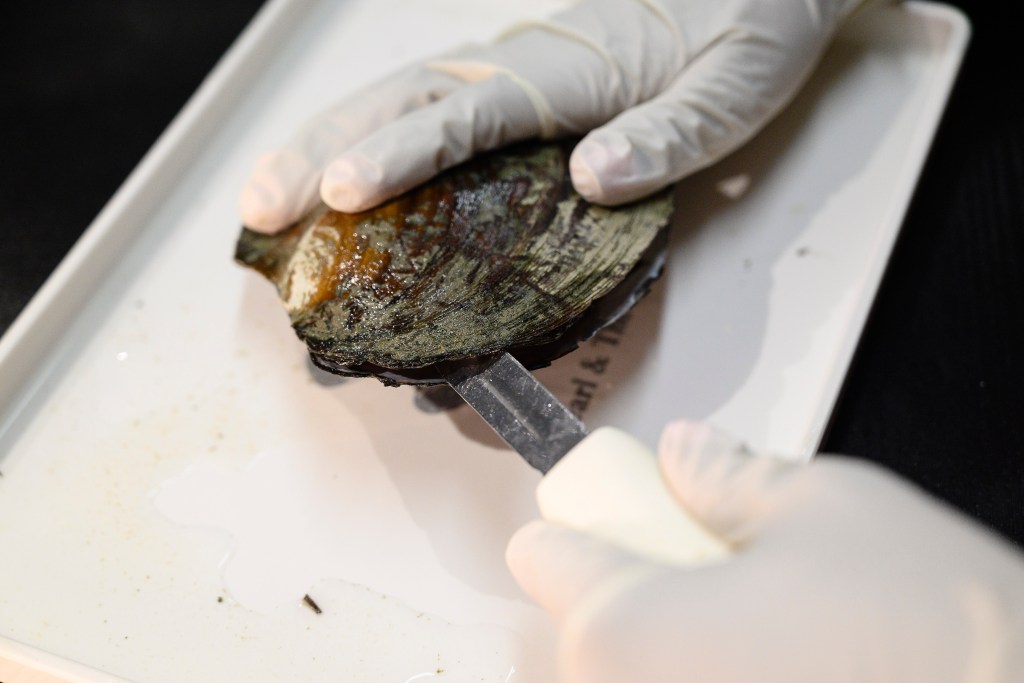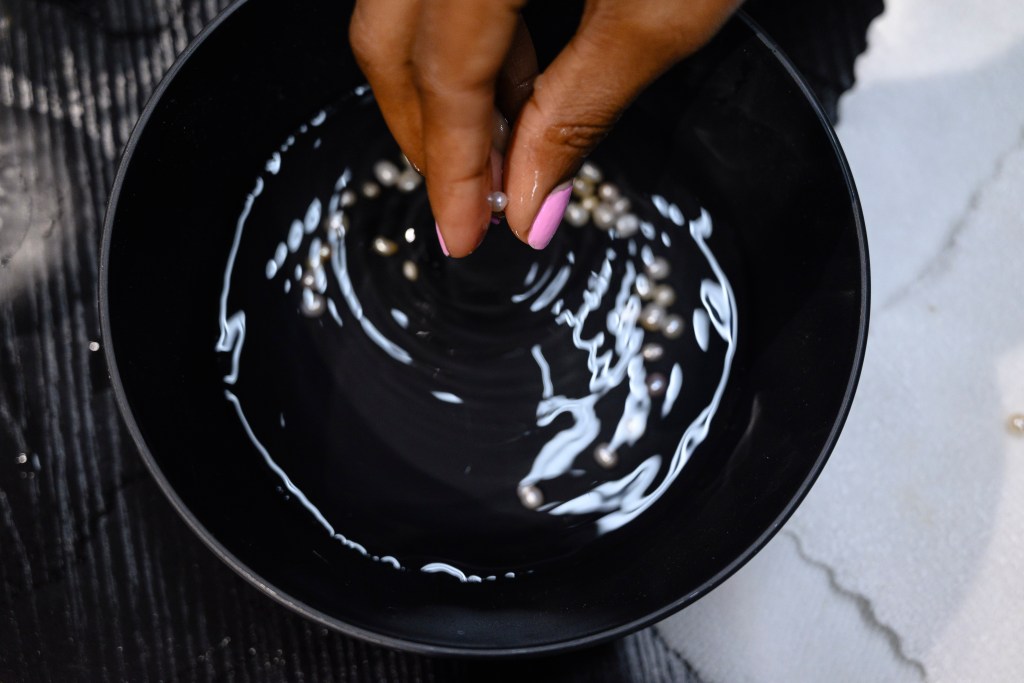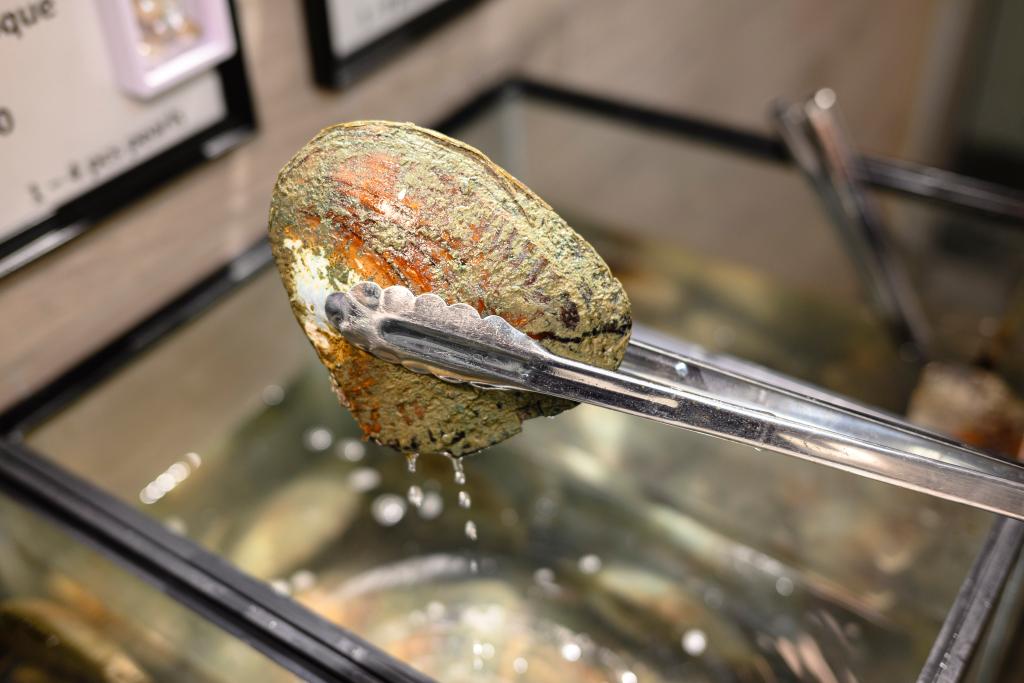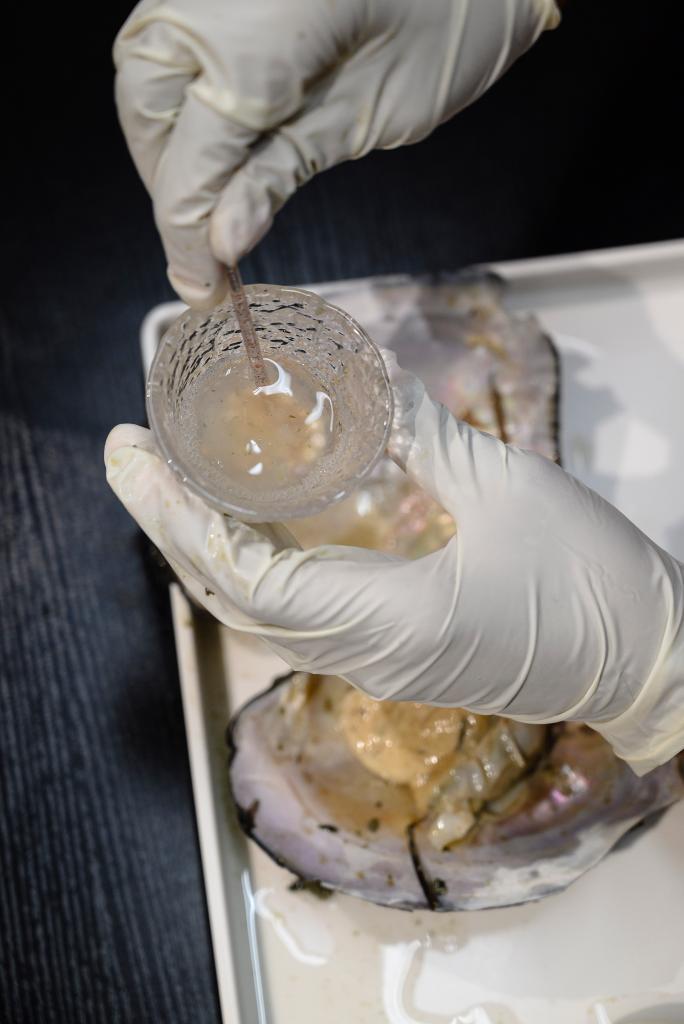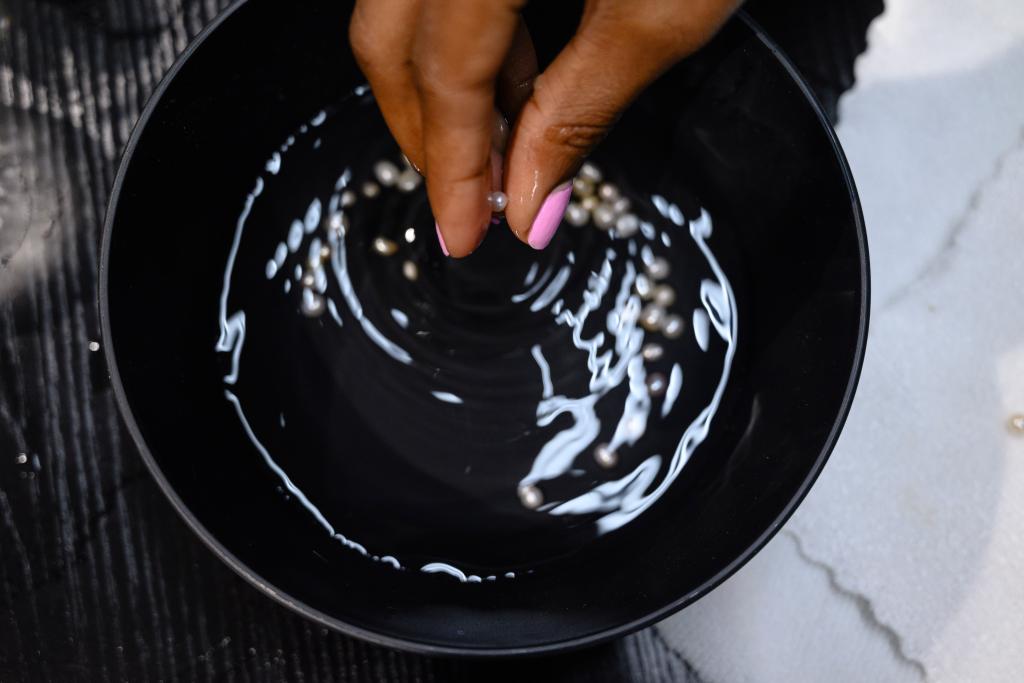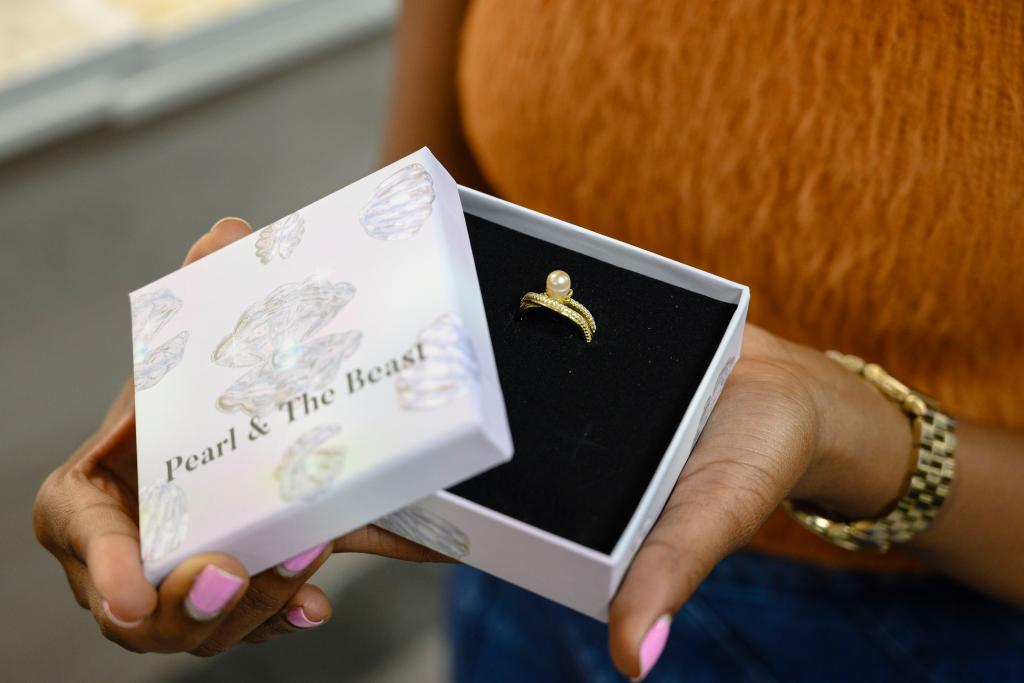New Yorkers are fishing for mussels in a jewelry store to DIY their own custom pearl accessories
If you want pearl jewelry from this Soho shop, you’re going to have to use some mussel.
At Pearl & the Beast, shoppers can go fishing for mussels and shuck them open themselves for shiny pearls to make their own necklaces, rings and more.
And you don’t have to shell out much for your DIY pearl accessories: one fresh catch of the day is $70 to $80 per mussel.
Krystal Chen, the 23-year-old Brooklynite and founder, told The Post it’s “the first and only mussel shop in the US,” and business is booming at the spe-shell 22 Howard St. shop.
“On weekends we sell around 100 mussels a day and weekdays, 20 mussels a day,” Chen said.
Pearl-seeking patrons can scoop out their chosen large mussel from the rectangular fish tanks inside the store. The row of tanks is filled with different types of mussels labeled by the pearls inside — baroque, weirdo, Edison and classic — based on the pearl’s size, shape, color and luster.
“My favorite, I would say, is the baroque and the most popular is the classic,” Chen said, noting the classic mussel is known to have the most pearls inside compared to the other shells and is easy to pair with any jewelry setting.
Some clients are lucky to find multiple pearls inside their mussels. If a customer’s mussel washes up empty, store associates will pick another shellfish, free of charge.
And these pearls are really a diamond in the rough: pearls in mussels are rare, according to the BBC, and “about one in 5,000” hide pearls inside.
Once the mussel is cracked open with a shucking knife and other tools, customers have to search through the shellfish’s slimy interior and then squeeze and pop out any pearls.
As invasive as the pearl search is, team members assist in the extraction process. That’s followed by a 20-minute cleaning procedure, dunking the pearls into a 30% solution of water and a powdery substance — made of what Chen called “secret ingredients” — to remove bacteria and the mussel coat from the jewel.
After a polish “to enhance their natural luster,” jewelry makers help customers create custom sterling silver jewelry — earrings, necklaces, bracelets, brooches, pendants, hairpins and rings — incorporating their pearl findings. The jewelry of choice has a separate price, costing between $20 and $80.
And here’s a pearl of wisdom: extra gems not set into jewelry are sent home with customers. Chen said they can bring them back to make more jewelry or accessories. Many creatives also take their mussel shell home and transform it into a jewelry holder, candle stand, necklace pendant, charms, spoons or framed art.
Chen, who started her company in 2023, said she gets her shellfish from a freshwater pearl farm that delivers mussels directly to her. The self-taught jewelry maker claimed her establishment is the first in the US to offer an experience with real pearl extractions from mussels while other shops hawk oysters with a singular mussel pearl.
Chen claimed oyster companies will open the shell and strategically replace the original sea pearl with a mussel pearl on top, then glue it shut before selling it to customers — unlike her business where people have to pinch the mussel meat to get pearls out.
“The oyster is fake, it’s kind of a trick,” Chen said.
But there are no tricks at Pearl & the Beast, which Chen named after Disney’s “Beauty and the Beast.”
“The beast is the mussel, it came out so ugly but produced something so beautiful,” Chen said.








